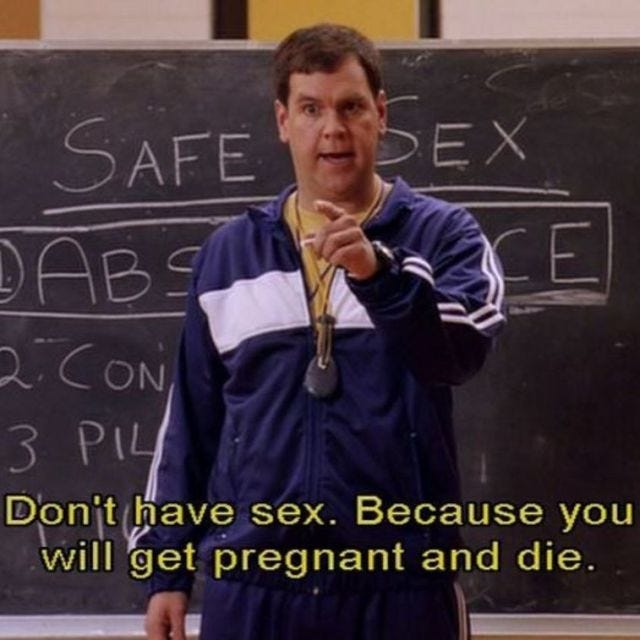For transparency, I originally wrote this article as an op-ed for The New York Times. I wanted to do some end-of-the-year publicity for DIY, and this issue tied in timely with some of the stories from the book’s opening chapter.
I’ve always enjoyed op-ed writing, and my first paid writing gig was writing for the campus newspaper’s opinion section my freshman year in college. I was paid ten dollars an article, which I believe is the still the rate of most freelance journalists today.
Fortunately, those articles were never digitally archived, so the world is spared from being exposed to the Y2K political rants of an uninformed 19 year old.
But when the Times passed, I decided to post it here instead of submitting it to a regional paper because 1) I didn’t want to frame this as a local issue that is unique to Minnesota, and 2) admittedly, I’m still fleshing out some of these ideas and that is one of the purposes of creating this Substack.
I’ve often thought why should I, someone who doesn’t teach kids or has kids of my own, care about high school curriculum? And more recently I’ve been thinking about why we treat sex ed as only having personal benefits to kids, as opposed to academic benefits, which is how we treat every other subject matter they’re taught.
So, here it is, my would-be Times op-ed making a selfish case for sex ed. Enjoy.
***********
December marks the 30th anniversary of Dr. Joycelyn Elders’ firing from her position as Surgeon General within President Clinton’s administration. Prior to her firing, when asked at a conference whether she supported masturbation being taught as a subject area within sex education, Dr. Elders replied:
“As per your specific question in regard to masturbation, I think that is something that is a part of human sexuality and it’s a part of something that perhaps should be taught. But we’ve not even taught our children the very basics. And I feel that we have tried ignorance for a very long time and it’s time we try education.”
Although she was a little dodgy of the question, she hinted that masturbation, as a topic, would be appropriate to include within curriculum at some point in a child’s formal education, but that schools should be able to teach the basics as well.
She didn’t suggest teaching first graders the best lube or whether the Rabbit lives up to its hype, but, nevertheless, merely mentioning masturbation in a non-condemning way was the death sentence for her service in government.

Even thirty years ago, Dr. Elders’ firing shouldn’t have come as a surprise. We live in a culture that has a long history of condemning masturbation, once calling the common behavior “self-pollution,” “self-abuse,” and the “solitary vice.” At the turn of the 20th century, for example, Dr. John Kellogg, a physician in Battle Creek, Michigan, believed masturbation was the “Moloch of the species” and that it was responsible for causing pimples, nail biting, tuberculosis, cardiovascular disease, and uterine displacement. To prevent, as he put it, “the foul orgies practiced by the little sinners,” Dr. Kellogg recommended wearing chastity cages, binding the hands at night, and eating a bland diet that included his newly developed corn flakes.
While we can laugh at some of the ridiculous hand wringing over masturbation from over a century ago, unfortunately, Dr. Kellogg’s fear mongering persists today with wellness influencers claiming masturbation causes depression, social anxiety, and low testosterone. Health misinformation is rampant on social media and formal education about the basics is not being applied as a universal antidote.
According to a 2023 report from the Guttmacher Institute, thirty-eight states mandate public school districts to teach some type of sex education or HIV education. However, only eighteen of those states require the information to be medically accurate. Further, twenty-nine states require abstinence to be stress and only four states explicitly prohibit the education from promoting religion. This is despite most Americans being in favor of sex education in public schools, and decades of research demonstrating that receiving sex education is associated with positive health outcomes.
But aside from the popularity and documented personal benefits of receiving the basics of sex education, an often-overlooked benefit is that of college and career preparation. As a clinical psychology professor at Minnesota State University, Mankato, who specializes in sexual behavior and sexual dysfunctions, I teach courses to undergraduate students on psychopathology and sexual health. Many students who enroll in my courses do so because they are interested in pursuing careers in healthcare. They’re the next generation of nurse practitioners, primary care physicians, urologists, gynecologists, and clinical psychologists who will be tasked with treating an array of sexual disorders and dysfunctions among their future patients.
Some students enter my classes with decent foundational knowledge of human sexuality obtained from sex education during their K-12 schooling. They have a grasp of sexual anatomy and understand masturbation does not cause zinc deficiency or tooth loss. Other students, to no fault of their own, didn’t receive any formal sex education in junior high or high school and grew up in so-called “silent families” where sex was avoided as a topic of discussion because of shame, embarrassment, or ignorance. They enter my classroom believing the g-spot is in the butt.
This lack of college preparatory education forces me to provide remedial lectures on basic anatomy, physiology, and the normalcy of certain sexual behaviors, including masturbation. These remedial topics are at the expense of lecturing on advance topics early in the semester. Before teaching the effectiveness of PDE-5 inhibitors in treating erectile dysfunction, I must teach the basic anatomy of the penis. Before discussing how specific masturbation interventions are effective in treating female orgasmic disorder, I must discuss how masturbation is a normal part of sexual development from the nursing stage to the nursing home.
If high school curriculum is designed around college preparation, school districts are ill-preparing students to enter college with knowledge about human sexuality to start learning about topics that are suitable and appropriate at the collegiate level.
If biology professors have an expectation that incoming freshman taking BIO 101 should already know the definition of photosynthesis, I should have an expectation that incoming freshman taking my courses should already know that women don’t pee out of their vaginas.
So maybe we should heed the off-the-cuff advice Dr. Elders mentioned at a conference thirty years ago. Maybe we should start teaching the basics to all students so that future healthcare providers can enter college better prepared to learn at the collegiate level. This will ensure, at the very least, their tuition dollars aren’t being spent on learning that masturbatory desire isn’t affected by breakfast cereal.





When I told my classmates in my masters program I wanted to become a sex therapist, one of them messaged me later and said, “Do you know where I could find an adult sex ed class?” She’s in her forties and has kids. We need better sex ed early on so bad 😫